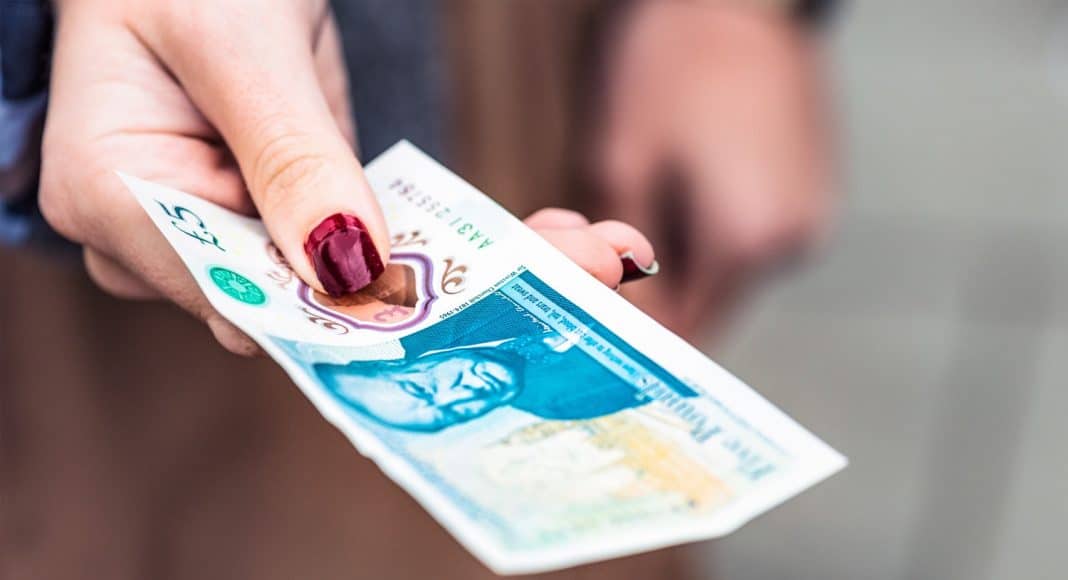After receiving complaints from vegans, vegetarians, Hindus, Sikhs, Jains, and others, the Bank of England has announced that it’s looking to stop using animal fat in the production of its new £5 notes.
The BBC reports £5 notes are made out of polymer, which is supplied by a company called Innovia. The Bank of England claims they were unaware of the presence of the tallow in the bills when they signed a contract with the company.
“We are aware of some people’s concerns about traces of tallow in our new £5 note. We respect those concerns and are treating them with the utmost seriousness,” the bank said in a statement. “This issue has only just come to light, and the Bank did not know about it when the contract was signed. Innovia is now working intensively with its supply chain and will keep the Bank informed on progress towards potential solutions.”
More than 100,000 people have signed a petition calling for the removal of the fats, and some Sikh and Hindus have called for the bills to be banned from their temples.
“The new £5 notes contain animal fat in the form of tallow,” Doug Maw wrote on the petition. “This is unacceptable to millions of vegans, vegetarians, Hindus, Sikhs, Jains and others in the U.K. We demand that you cease to use animal products in the production of currency that we have to use.”
The new bills were introduced in September. It’s unclear how many are already in circulation.
In case you were wondering, Merriam-Webster dictionary defines tallow, the type of animal fat used in the five pound bills, as “the white nearly tasteless solid rendered fat of cattle and sheep used chiefly in soap, candles, and lubricants.” Here’s hoping the Bank of England’s decision helps saves the lives of the some cattle and sheep.


